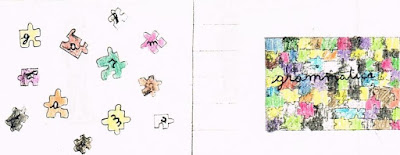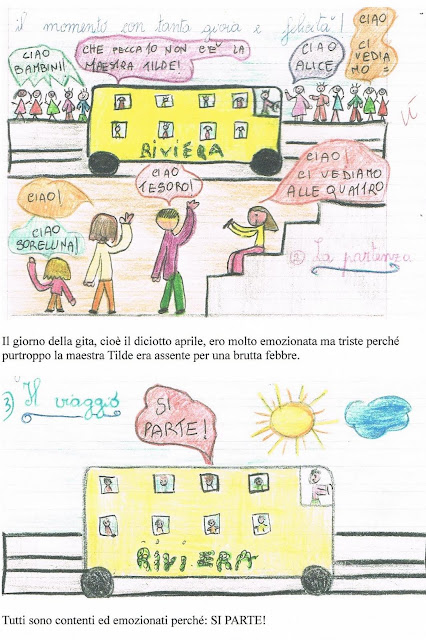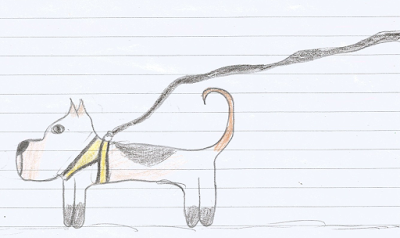<
A chocolate school
One day the Minister of Education changed the structure and the
organisation of elementary schools. That night he declared on the
news: “Let’s be done with this school where kids have to study
for hours on end, do homework and never have fun. From now on school
will be fun. All classrooms will be full of toys, and lots of candy:
chocolate, sweets and lots of Coke. The teachers will have to
organize parties and games, and lots of fun trips. They will play
films and educational cartoons. This way, kids will love school and
will study more as a consequence: it is so simple.”
The news travelled the world and everybody praised this incredible
initiative. Kids were happy and were already excited about the
change. The only one who was angry was the Minister of Economy. He
thought to himself: “How are we going to pay for all those toys,
all those sweets, poor me!” The happiest of all were bakers, the
toy and the cinema industries.
The long awaited first day of school came. The school had been
covered in fine chocolate and kids jumped on it in great numbers.
Children eagerly awaited the sound of the first bell. When the moment
came, they ran excitedly into the classrooms. They started eating
sweets and little pizzas and drinking tons of Coke. When they were
full they started playing with toys, happy and free. Then the
teachers took them to watch educational cartoons. When the first
school day ended, the kids went back home all stained with chocolate,
but happy. The days went by with great joy; the kids finally loved
school. Only a few parents were unhappy:
“They could have had some ice cream too.”
After five years, the Minister of Education presented a report in
Parliament:
“The experiment was very successful, our school is the first in the
world, the statistics are clear.”
After a few years there was some strange news in the papers: bridges
and dams were breaking, planes were losing their way in the sky, one
patient had a liver instead of a heart transplanted, a teacher got
arrested for teaching grammar.
Only one good piece of news appeared in the economy section of the
paper: Italy had become the number one country for chocolate
production.
Ercole Bonjean
Translation by Chiara Amoretti
Similar posts









Commenti
Posta un commento